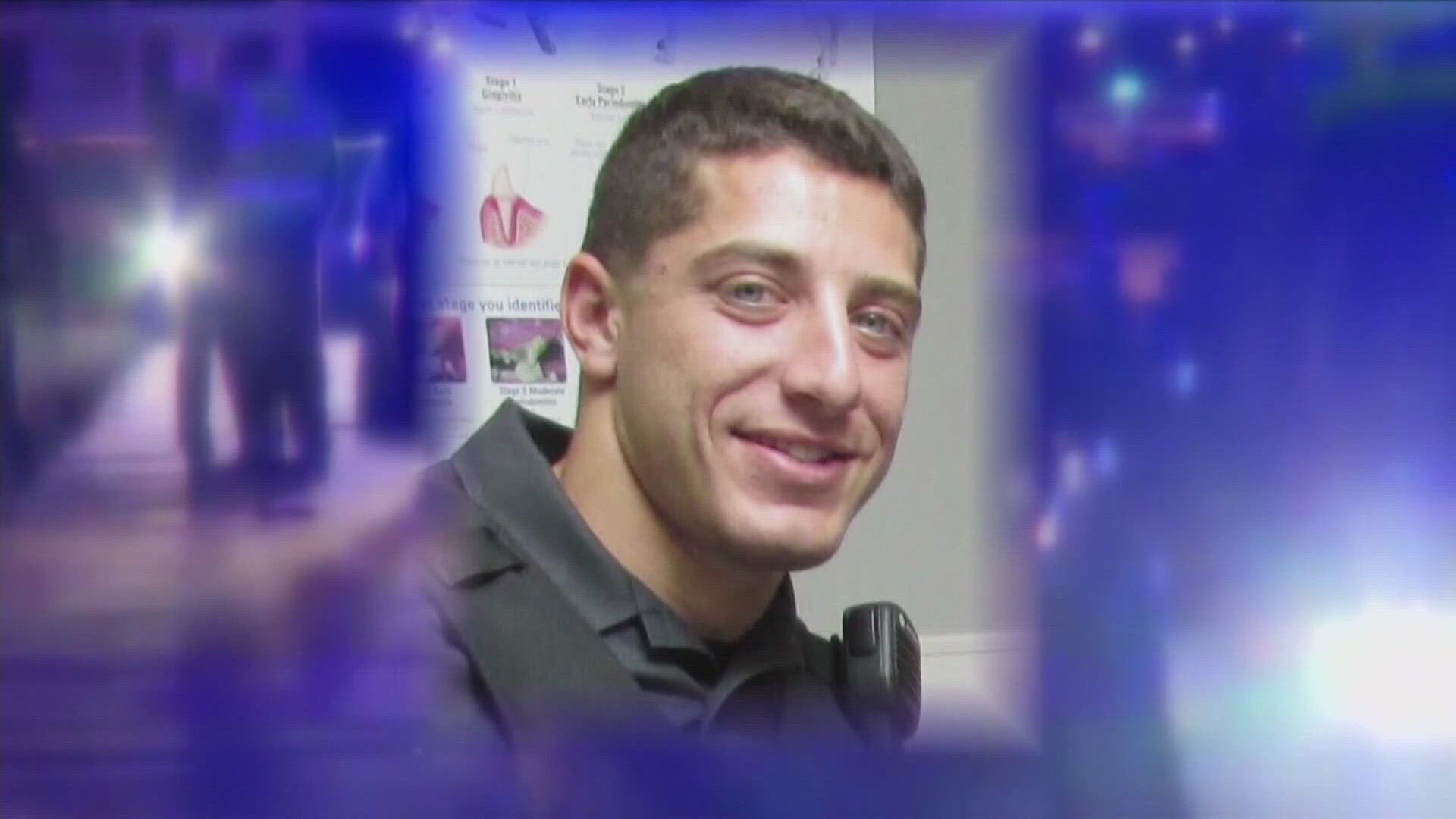OLNEY, Md. — A bill that would close what advocates consider a loophole in an existing DUI law is headed to Maryland Gov. Wes Moore's desk for his signature.
In the legislative session's closing hours and in its sixth year of being introduced, Maryland lawmakers passed a bill to require ignition interlocks for people put on probation for driving under the influence of alcohol.
The passage of this bill is the final step to make "Noah's Law" whole, according to late officer Noah Leotta's father, Richard Leotta.
On Dec. 3, 2015 a drunk driver hit and killed Montgomery County Police Officer Noah Leotta, 24, when he working the Holiday Alcohol Task Enforcement at Rockville Pike and Edmonston Drive in Rockville.
The driver who struck Leotta was identified by police as Luis Gustavo Reluzco, 47. Investigators said he tested with blood alcohol level of .22, nearly three times the legal limit.
In 2016, advocates including Richard Leotta, pushed for Noah's Law, which required all drivers arrested for a DUI to get an ignition interlock system installed in their car. The device requires drivers to pass a breath test in order to start their car.
"Seventy percent of the time, when the person gets an interlock, they don't repeat," Leotta told WUSA9.
However, a last minute change in the legislation, made it so that only convicted drunk drivers were required to participate in the ignition interlock system.
"We know that 60% of the people get PBJs," Leotta added referring to the acronym for probation before judgement, which is what DUI offenders in Maryland get if they are not convicted.
"I am okay with leniency. I'm okay with that, but make it conditioned on the interlock," Leotta said.
Moore is poised to sign HB 105.
Leotta recognized that it was a group effort to get the legislation passed after so many years. He says what kept him going through the process is thinking of the innocent victims that have lost their lives to impaired driving, including his own son.
"Now, Noah will be on patrol, 24/7, saving more lives," Leotta said. "That's what I'm happy about."
Once the bill is sign, the law would go into affect on Oct. 1.
Leotta said he plans to continue his advocacy work at a local and national level. He says he plans to broaden his effort to focus on road safety overall and strengthening the support for law enforcement officers.

